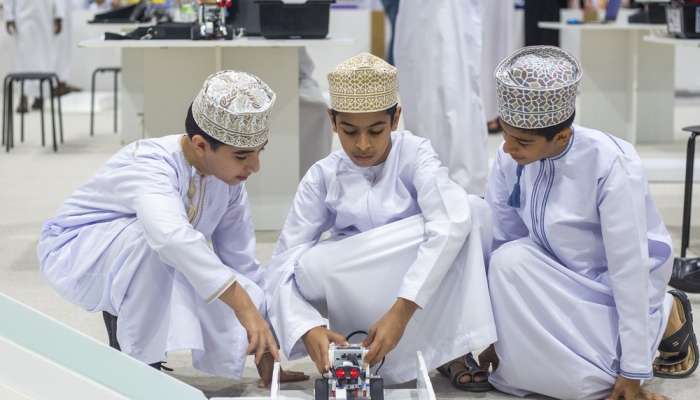
Muscat: A team of students from Sultan Qaboos University invented a technique by using graphene and polymer materials, as an alternative to silicon, to manufacture solar and photovoltaic cells. This method improves the efficiency of solar systems by up to 60 percent.
The innovation was developed by students Aisha Al-Wahaibi, Mozn Al-Abrai, Al-Hasna Al-Adwani and Nusaiba Al-Kharousi from the College of Engineering at Sultan Qaboos University.
The project aims to develop solar cells made of locally produced polyethylene and integrated with graphene, which is manufactured in the laboratories of Sultan Qaboos University. The successful product of this project will add value to the polyethylene produced locally, which will enhance the Omani economy, open new job opportunities, and achieve Oman 2040 vision.
Dr. Farouk bin Khalfan Al-Jahuri, Director of the Oil and Gas Research Center at Sultan Qaboos University and the project supervisor, told Oman News Agency (ONA) that the idea of the project is to use graphene with a polymer material in the solar cell, and when graphene is linked to a polymer such as polyethylene through a chemical reaction, a material can be obtained. A new composite with good mechanical properties in terms of toughness and elasticity and as a result graphene-based polymeric solar cells with excellent flexibility and high solar energy absorption properties can be produced.
He added that the Sultanate of Oman is a major producer of raw thermoplastic polymers in the GCC countries. The two main polymers that are now being produced are polypropylene (PP) and polyethylene (PE) in different grades of each, and most of these polymers are exported abroad as raw materials and then potentially imported as finished products, given the urgent demand to reduce carbon emissions in Oman Adding products of local value (ICV) to enhance the Omani economy and technological development.
The student team won the Upgrade programme in its sixth edition 2022 to transfer graduation projects to emerging companies (the industrial track), which was organised by the Ministry of Higher Education and the Center for Scientific Research and Innovation. The Ministry also funded 349 research projects in the academic sector out of 1019 projects in which research support programs competed. competency-based organisation.